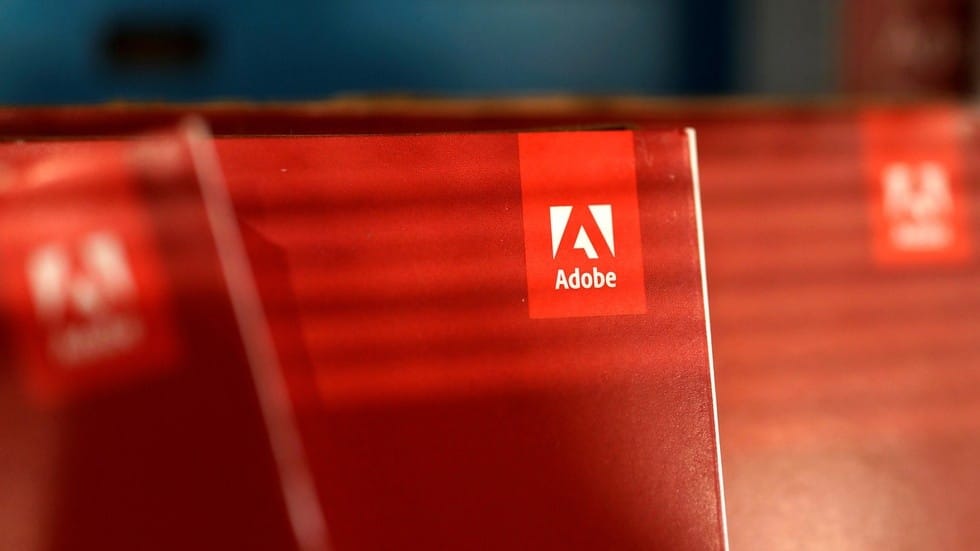Adobe-do-be-do: Europe Shouldn’t Underestimate US Software Power


Orinoco Tribune – News and opinion pieces about Venezuela and beyond
From Venezuela and made by Venezuelan Chavistas

Adobe is to cut Venezuela off because of US sanctions, showing how vulnerable countries in the ‘line of fire’ are, due to their dependence on American computer software products.
By Neil Clark
We all know about US hard power. We know a lot about US soft power too (think Hollywood, rock-and-roll, and Marvel comics). But there is another way the US tries to maintain a pre-eminent role in world affairs. I call it software power.
The operating system on the computer you own is probably American. It’s odds on that the search engine you use to find things out online is American too. It‘s also very likely that the social media you log into on a daily basis is American. It might be overstating things, but it’s not far off to say that the ‘Computer World’ we all live in, and which Kraftwerk sang about almost forty years ago, is basically an American world, but it’s not far off.
It’s this dependence on US software and the products of Silicon Valley giants which makes countries which want to maintain their independence from Washington so vulnerable. The latest victim of US software power projection is Venezuela. Adobe, the Californian company which provides design tools such as Photoshop and Illustrator, and the document management system Acrobat Reader, announced that on the 28th October all subscriptions in the Bolivarian Republic will be cancelled without refund.
The firm cites President Donald Trump’s executive order from August which, as RT has reported, ‘basically bans all transactions between the countries.’
You can imagine the impact the Adobe ban will have on businesses in Venezuela. A whole country and not just Nicolas Maduro and his government will be hit. We can probably all survive without US food, or US films. But can we really get by in our daily lives without US software?
RELATED CONTENT: Adobe Leaves Venezuela, so What?
Here’s a few facts to show us how much we rely on US companies when we log in, or switch on our IPhones.
*Microsoft Windows has a 77.61% share of the world’s operating system market, with Apple, also from the US, in second place.
*In early 2018 Microsoft’s Outlook.com said it had 400m active users.
*As of June 2019 there were over 2.41 billion monthly users of Facebook.
*In Q2 of 2019 there were 139m Twitter users.
*Google has 90.46% of the search engine market share worldwide and receives over 63,000 searches per second every day, amounting to 2 trillion searches per year.
No one is arguing that the US companies named above don’t provide some great services to customers. Often the criticism of them (and particularly of Facebook), is over-the-top and lacks balance.
The problem is that the market dominance of the Silicon Valley giants can be, and has been, exploited by the US government, political agitators, and lobby groups in the US in order to achieve geo-strategic political goals. When the US sanctions a country it knows full well how dependent that country is likely to be on its computer products. It’s an additional and very important hold (and very 21st Century) hold the power elites of the country have over those who resist the writ of Washington.
There’s also the political pressure that can be and has been exerted on these hi-tech companies to withdraw services from users from ‘official enemy’ countries. Look at the way legislators have called on Facebook and Twitter to ban dissident voices and consider the hysteria over Russian ‘bots’ following the US presidential election in 2016.
Before I get wrongly accused here of ‘anti-Americanism’, let me acknowledge that it would probably be the same whoever had such a dominant market position. It just so happened that the computer revolution coincided with the emergence of the US as a global hegemon.
RELATED CONTENT: Adobe Announces Suspension of Services in Venezuela Due to US Sanctions
US-backed regime change efforts in Venezuela have, it’s worth noting, been backed enthusiastically by EU poster boy Guy Verhofstadt and other European ‘liberals.’ One assumes they are very happy with Adobe’s withdrawal of services to Venezuelan customers.
.@jguaido is the only legitimately elected lead representative of the Venezuelan people & @FedericaMog should recognise him as such!
.@jguaido es el único líder representante del pueblo venezolano elegido legítimamente y @FedericaMog ¡debería reconocerlo como tal! #Venezuela pic.twitter.com/gTSTvCGeuI
— Guy Verhofstadt (@guyverhofstadt) January 24, 2019
But Verhofstadt and co might end up with egg on their faces. Make no mistake, if US software power can be used against countries in Latin America, it can be used against European countries too, if and when it needs to be.
Only last week we saw the US slap 25% tariffs on French wines, Italian cheese, and Scottish whiskey, and announce it would add 10% duties on ’large civilian aircraft.’ The French finance minister said that Europe was ‘ready to react’ with retaliatory tariffs on its own. But if we do get a full-scale US-EU trade war, won’t America’s software power give it the edge and force an EU climbdown?
If Europeans were as smart as their smartphones, they’d be waking up to the fact that they are vulnerable and be planning accordingly.

Neil Clark is a journalist, writer, broadcaster and blogger. He has written for many newspapers and magazines in the UK and other countries including The Guardian, Morning Star, Daily and Sunday Express, Mail on Sunday, Daily Mail, Daily Telegraph, New Statesman, The Spectator, The Week, and The American Conservative. He is a regular pundit on RT and has also appeared on BBC TV and radio, Sky News, Press TV and the Voice of Russia. He is the co-founder of the Campaign For Public Ownership @PublicOwnership. His award winning blog can be found at www.neilclark66.blogspot.com.